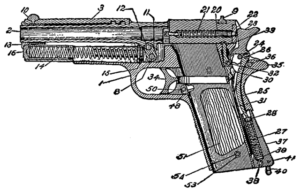The Strong Defense
You Deserve
Get Your Sights On Florida’s Gun Control Laws

Gun control laws in Florida is a highly contentious subject, especially over the past several years. Many misconceptions persist about Florida’s gun control laws, and this article will address some of those misconceptions as it covers the basics of gun control laws in Florida.
Illegal Firearms
Florida law prohibits several different types of firearms and accessories for firearms. In general, firearms and firearms accessories that have a high rate of fire, are difficult to track, and are particularly dangerous are illegal in Florida. Illegal firearms and firearms accessories include
- armor-piercing rounds,
- dragon’s breath shotgun rounds,
- bolo shotgun rounds,
- flechette rounds,
- bump-fire stocks,
- firearms with obscured or altered serial numbers,
- short-barreled shotguns,
- short-barreled rifles.
Antique firearms that may not readily be made operable and firearms permitted under federal law are permitted under Florida law as well.
Persons Prohibited From Owning Firearms In Florida
Florida law has identified individuals who, for public safety reasons, are prohibited from owning firearms. The classes of people prohibited from owning firearms in Florida are generally those people who are considered too violent or too mentally incapable of responsibly handling a lethal weapon. People who may not own a firearm in Florida include
- felons,
- people subject to a restraining order for domestic violence,
- people subject to a risk protection order that prohibits firearms ownership,
- a “violent career criminal” under Florida law,
- those who have been adjudicated mentally defective or have been committed to a mental institution,
- are under 18 except if lawfully hunting or with adult supervision.
Concealed Carry License
Florida law includes provisions for individuals to be licensed to carry a concealed firearm. To be eligible to be licensed to carry a concealed firearm, one must meet several criteria, including
- at least 21 years old,
- citizen or permanent resident of the United States,
- not have been convicted of a felony or a drug crime,
- not have been committed for substance abuse,
- completed an approved firearms safety course,
- have never been adjudicated to be incapacitated or committed to a mental institution,
- not chronically nor habitually use alcoholic drink or other substances to such an extent that he or she is impaired
With or without a concealed carry license, open carry of a firearm is illegal under Florida law.
Penalties
In Florida, most firearms violations are a third degree felony, which is punishable by up to 5 years in prison and a fine of up to $5,000. However, illegally possessing a short-barreled rifle or shotgun or a machine gun is a second degree felony, which could lead to a prison sentence of up to 15 years and a fine of up to $15,000.
Openly carrying a firearm is a second degree misdemeanor, which is punishable by a jail term of up to 60 days and a fine of up to $500.
Possessing a firearm at a school, a school-sponsored event, or on school property, school bus, or school bus stop is a third degree felony. So to is exhibiting a firearm in a rude, careless, angry, or threatening manner within 1,000’ of school property while school is in session or while a school-sponsored event is underway.


